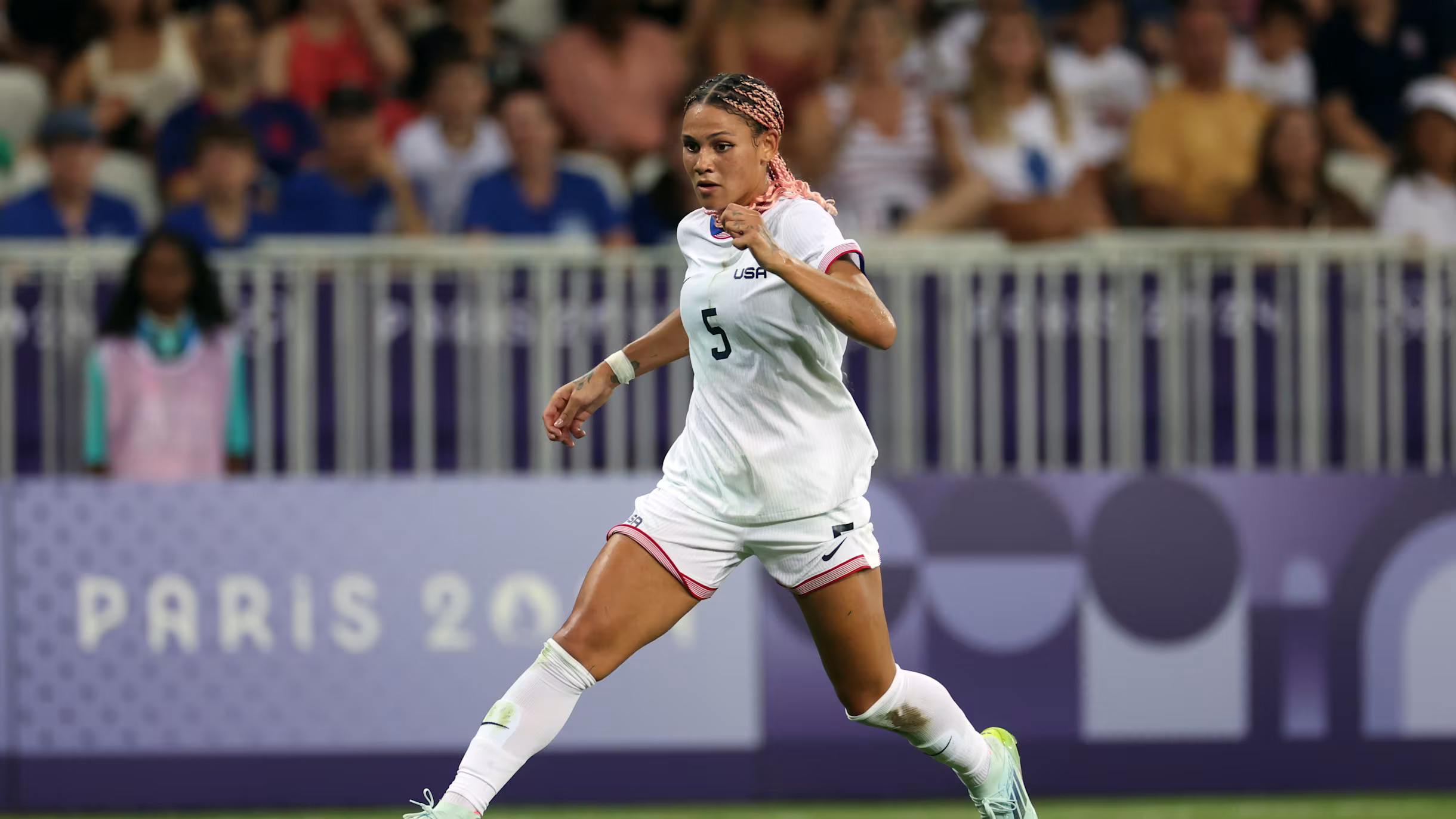Heading into the Paris Games, American women’s soccer fans might be feeling uneasy due to recent developments. Last year, the US National Women’s Team experienced an unprecedented early exit from the World Cup, falling to Sweden in the Round of 16.
With key veterans like Alex Morgan and the retired Megan Rapinoe missing from the Olympic roster, there’s a sense of uncertainty about the team’s performance this year.
Despite these concerns, the team is under new leadership with coach Emma Hayes and features a roster brimming with fresh talent. Notably, 22-year-old Trinity Rodman has made a significant impact. Rodman’s remarkable extra-time goal against Japan helped propel Team USA to the semifinals, keeping their medal hopes alive.
Trinity Rodman is no stranger to the spotlight. Her father, Dennis Rodman, is a well-known NBA player famous for his rebounding skills and colorful personality. Though Rodman and her father have had a strained relationship, she acknowledges the influence of his athleticism and has expressed gratitude for the lessons learned from his public life.

Rodman’s soccer journey began early, and despite committing to UCLA, she never played in the NCAA due to the COVID-19 pandemic. Instead, she joined the Washington Spirit as the youngest player ever drafted into the NWSL, where she made an immediate impact, earning accolades like NWSL Rookie of the Year.
Her rise continued with the USWNT, where she made her debut in January 2022. Rodman’s first start for the national team was memorable but controversial, as a goal she scored was disallowed following a VAR review. Despite this setback, she has remained a prominent player for the team.
In addition to her soccer career, Rodman has ventured into writing. She co-authored a children’s book, “Wake Up and Kick It with Trinity Rodman,” which chronicles her journey in soccer and aims to inspire young readers to pursue their dreams.
Rodman’s personal life has also garnered attention. She recently revealed her relationship with Trinity Benson, an NFL free agent. Their shared first name has become a fun aspect of their public interactions, with Benson showing strong support for Rodman’s soccer career.
Off the field, Rodman has taken up pickleball, which she enjoys as a relaxing hobby that also helps her agility in soccer. Her next challenge is the semifinal match against Germany on August 6. Depending on the outcome, Team USA will either vie for the gold or bronze medal in the subsequent matches.